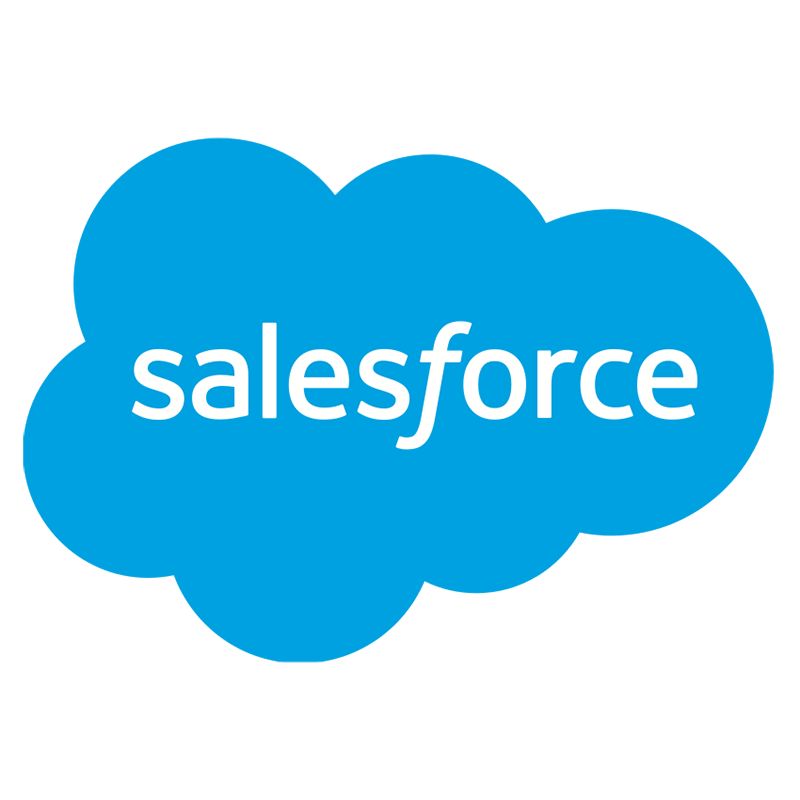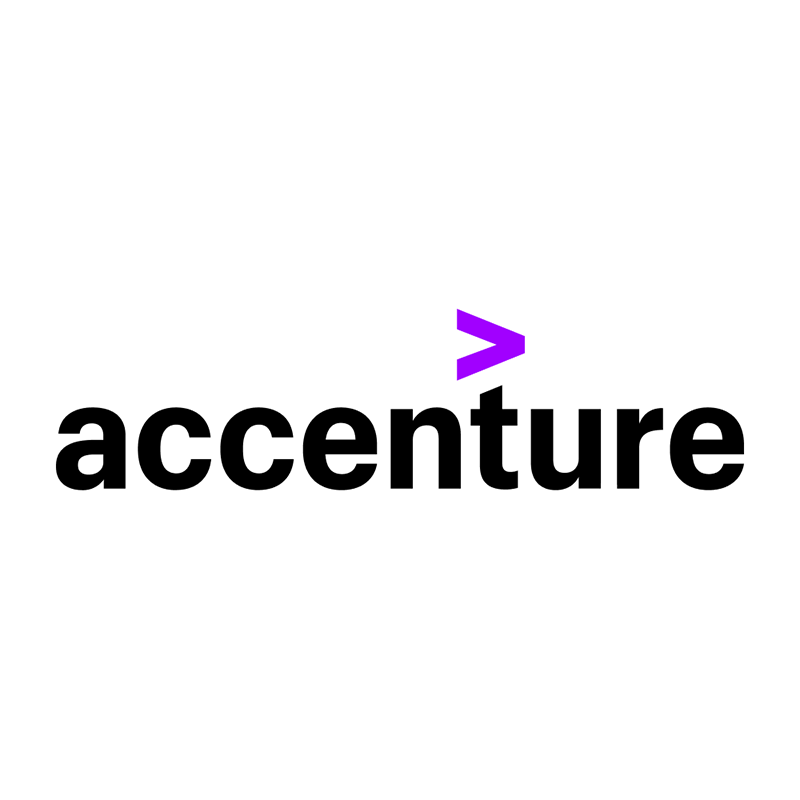- Learning mode:
- On campus
- Entry score:
- Duration:
- Full-time 3 years
- Part-time 6 years
- Next intake:
- February, July
- Location:
- Melbourne City
In a business world continually reshaped by digital disruption, future-thinking leaders capable of designing contemporary solutions are in high demand.
With RMIT's Bachelor of Commerce, you'll stay up-to-date with the latest in technology, business theories, and market trends. With six majors on offer, this course you'll explore the complexities of laws, policy development, market dynamics and technological innovation that shape today's commerce.
But it's not just theory – you'll also master critical analysis and data-driven decision-making, equipping you to uncover trends and insights that will drive the future of business in the digital age.
Plus, you'll gain valuable real-world experience. Connect with industry professionals and learn from their experiences through engaging conversations and eye-opening workplace visits. Then, dive into an industry-based project where you'll tackle the emerging opportunities and challenges that define tomorrow's commerce landscape.
Ready to make your mark as a future leader? Whether your goal is a corporate career, government work, or the public sector, this course sets you on the path to success in the commercial world – and beyond.
Master the digital environment and tackle the latest trends and challenges with expert knowledge and analytical skills.
Turn your theoretical knowledge into practical problem solving through an industry-based project that addresses the future of commerce.
Designed in consultation with industry partners, this course is tailored to prepare you for future careers in commerce.
This degree is closely integrated with industry and real-world problem solving as a vital part of the learning experience. It is also underpinned by various technology platforms, enabling you to experience various applications that will help you in the world of work, and to provide the technological support throughout your learning journey. We have partnered with key organisations in industry to help build what you will learn in your classes.




There are six majors in this course, specifically chosen for their relevance to the modern commercial world, setting you up to solve pressing problems.
This major equips you with the skills to manage cyber risks by combining technical knowledge with an understanding of data protection, privacy laws and governance frameworks. Graduates will be prepared for roles in governance, legal compliance, and cybersecurity risk management across various industries, helping organisations protect data.
Learn to leverage AI and analytics tools for data-driven decision-making, business problem-solving, and optimising operational efficiency. You'll gain hands-on experience with AI tools and data science while developing strategic thinking, preparing for dynamic roles in data, business intelligence, and strategy.
Navigate the complexities of conducting business across borders with a focus on global market analysis, foreign direct investment, and managing multinational enterprises. You'll cover international market analysis, foreign investment decisions and managing multinational businesses in the digital era.
This major prepares you with the expertise to leverage technologies that shape consumer behaviour and marketing strategies. You’ll learn marketing principles, consumer behavior, and research skills, while developing the ability to execute strategies that include marketing automation, personalisation and technologies like AI to enhance customer experiences.
Gain the cutting-edge data skills and economic and financial analytical techniques to navigate global financial markets. In this major, you'll explore financial innovation, corporate finance, forecasting, big data, machine learning, and portfolio management, developing expertise in financial modeling, data analysis, and economic strategy. This major prepares graduates with the problem-solving and technological skills to thrive in the digital economy.
This major equips you with the tools to lead strategically in a technology-driven business environment. You’ll develop skills in authentic leadership, ethical practices, and strategic thinking, learning to drive sustainable growth and build high-performing, ethical, and inclusive workplaces.
The Bachelor of Commerce is offered in a blended delivery mode, made up of face-to-face and online-based activities, with the primary campus being RMIT’s Melbourne City Campus. The course will be taught through an innovative and digitally blended curriculum, including workshops, lectures, presentations and student-led discussions.
The program incorporates individual assessments, in-class assessments and group work, all grounded in the principles of active, authentic and applied learning. Assessments will also be enhanced by the use of relevant digital tools such as serious games, simulations and technology-focused platforms.
The types of classes you have will depend on the course you’re studying. Classes are offered in various formats designed to provide meaningful engagement with staff, industry and peers and provide for access and use of spaces where learning can be applied and active, including an array of specialised equipment.
Most RMIT courses do not include passive large-scale classes such as lectures, instead the content traditionally provided in lectures is made available online. This may be in the form of readings, videos or other on-demand learning materials. This content will also support the basis of interactive learning that takes place in on-campus classes.
The world is constantly changing, and there are universal skills that can help you adapt to the evolving nature of work and global engagement.
As part of your study experience at RMIT, we provide 6 future-focused RMIT Capabilities:
RMIT Capabilities are built into your course as well as some of our extracurricular experiences. They inform the design and delivery of your learning activities and assessments, so by the time you graduate, you’ll be ready to apply these capabilities in your life and work.
The Bachelor of Commerce features two designated Work Integrated Learning (WIL) subjects. These subjects will engage you in real-world learning journeys, designed to complement your theory and strengthen your understanding of how commerce operates in Australia. You’ll tackle issues and priorities required of commercial leaders in the digital world, setting up your future career.
Industry-partnered learning opportunities and additional industry-engaging activities will be present throughout other elements of the course.
You'll also have the opportunity to undertake paid or unpaid internships and have your work experience recognised towards your study.
RMIT offers a range of opportunities for our students to study abroad through overseas work, exchange and study experiences with over 165 partner universities worldwide.
The blended learning nature of this course means you'll be required to attend in-person classes as well as study online in your own time. You can expect to be on campus, on average, 1-2 days per week, with an additional 5 hours of external study per subject, per week (including required reading and assignment load).
The knowledge and skills you will acquire throughout this degree and how they can be applied in your career are described in the learning outcomes.
To graduate from the Bachelor of Commerce, you must complete the following requirements:
This can be completed in a variety of ways with certain limitations, but the following is an example of a typical Bachelor of Commerce course map:
The first year of your study will primarily focus on establishing core business and commerce knowledge. You will explore AI and business analytics, business law, financial instruments, digital business security and more through eight core courses.
In your second year, you will delve deeper into the commercial world, beginning study on your chosen major or minor. You will also be able to complete one of your WIL courses at this time. Majors and/or minors include:
In your final year, you will complete any remaining major or minor courses, as well as participate in your capstone course. This course is designed to book-end your degree and represents a summation of your learning journey.
Choose a plan below to find out more about the subjects you will study and the course structure.
RMIT's Bachelor of Commerce graduates are well-equipped to confront significant challenges within the continually evolving commercial world.
With your mix of chosen major and minors, you’ll unlock a world of possibilities where your work-ready skills become your passport to diverse career landscapes. Seize the chance to lead, innovate and make your mark in a career that resonates with your ambitions.
Depending on your choice of major, minor, and other subjects, here are some possible jobs in the following sectors:
With RMIT's comprehensive curriculum and industry connections, you’ll be well-prepared to navigate and excel in these dynamic roles, making a significant impact in the commercial world.
You must have successfully completed the Victorian Certificate of Education (VCE) (or equivalent qualification).
Victorian Certificate of Education (VCE) units 3 and 4:
AND
Victorian Certificate of Education (VCE) units 3 and 4:
or equivalent studies.
For Semester 1 2025 applicants, this course has a Guaranteed ATAR (excluding adjustment factors).
This means that if you receive an ATAR equal to or above this and meet the course pre-requisites, we will guarantee you an offer in this course.
If you receive an ATAR below this guarantee, you may still receive an offer, depending on the availability of places in this course and whether you are eligible to receive any adjustment factors.
Please note: For VTAC applicants to receive an offer, this course must be your highest eligible preference.
Entry to this program is competitive. Eligible applicants are ranked and selected in order of merit based on their academic achievement plus any adjustment factors.
You may be eligible to receive adjustment factors which include equity access schemes and/or subject adjustments to a maximum of 28 aggregate adjustment points. For more information about what adjustment factors RMIT considers visit Admission to RMIT.
We will consider your entire academic record to determine your eligibility for entry. The highest level of education you have previously completed will usually determine how you are ranked.
Please select the highest level of education you have or will be completing in order to find out the selection criteria that applies to you, in addition to meeting the above entry requirements.
Entry to this program is competitive. Eligible applicants are ranked and selected in order of merit based on their academic achievement. You will be ranked on your ATAR plus any adjustment factors.
The SNAP access scheme is designed to increase tertiary participation by giving priority access to RMIT diploma and degree programs to eligible applicants currently studying Year 12 at a SNAP partner school.
The RMIT Elite Athlete Program supports eligible elite and emerging athletes to achieve sporting and academic excellence, allowing students to balance the demands of both their studies and their athletic responsibilities.
The Indigenous Access Program supports your application to RMIT through an informal interview process where you will receive help from the Ngarara Willim Centre. Additional consideration will be given if you have relevant life, work, education or training experience.
We will consider your entire academic record to determine your eligibility for entry. The highest level of education you have previously completed will usually determine how you are ranked.
Successful completion of any Australian Advanced Diploma (or equivalent) will meet the minimum entry requirements for this course.
Completion of an Australian Diploma (or equivalent) does not satisfy the minimum entry requirements for this course.
You may satisfy the academic requirements by completing the STAT multiple choice. Your overall score will be converted to an equivalent ATAR and competitively ranked for selection.
Your STAT results are valid for two years prior to the commencement of your study.
If you are applying to RMIT as an applicant with vocational education and training study, you may sit the STAT multiple choice if you:
You are still required to meet all other program prerequisites or equivalents.
Learn more about the STAT and STAT results.
The RMIT Elite Athlete Program supports eligible elite and emerging athletes to achieve sporting and academic excellence, allowing students to balance the demands of both their studies and their athletic responsibilities.
The Indigenous Access Program supports your application to RMIT through an informal interview process where you will receive help from the Ngarara Willim Centre. Additional consideration will be given if you have relevant life, work, education or training experience.
Entry to this program is competitive. Applicants are ranked and selected in order of merit based on their academic achievement, e.g., GPA (including any adjustment factors).
We will consider your entire academic record to determine your eligibility for entry. Previous fail grades in similar courses may affect your eligibility. You will be assigned a selection rank (comparable to an ATAR) based on your GPA.
You may satisfy the academic requirements by completing the STAT multiple choice. Your overall score will be converted to an equivalent ATAR and competitively ranked for selection.
Your STAT results are valid for two years prior to the commencement of your study.
If you are applying to RMIT as an applicant with higher education study, you may sit the STAT multiple choice if you:
You are still required to meet all other program prerequisites or equivalents.
Learn more about the STAT and STAT results.
If you have been excluded from a program due to academic progress you are encouraged to submit a personal statement outlining the strategies you will adopt to ensure academic success.
If you are applying to RMIT through VTAC you can complete and submit the VTAC personal statement via your online VTAC account.
If you are applying direct to RMIT you can upload your completed personal statement via your online direct application.
The RMIT Elite Athlete Program supports eligible elite and emerging athletes to achieve sporting and academic excellence, allowing students to balance the demands of both their studies and their athletic responsibilities.
The Indigenous Access Program supports your application to RMIT through an informal interview process where you will receive help from the Ngarara Willim Centre. Additional consideration will be given if you have relevant life, work, education or training experience.
Entry to this program is competitive. Applicants are ranked and selected in order of merit based on their academic achievement, e.g., Skills for Tertiary Admissions Test (STAT) score (including any adjustment factors).
You must have successfully completed the Victorian Certificate of Education (VCE) (or equivalent qualification) and meet the stated prerequisites.
Work and life experience does not provide any additional consideration for entry to this program. You may satisfy the academic requirements by completing the STAT multiple choice.
You may satisfy the academic requirements by completing the STAT multiple choice. Your overall score will be converted to an equivalent ATAR and competitively ranked for selection.
Your STAT results are valid for two years prior to the commencement of your study.
If you are applying to RMIT as an applicant with work and life experience, you may sit the STAT multiple choice if you:
You are still required to meet all other program prerequisites or equivalents.
Learn more about the STAT and STAT results.
The RMIT Elite Athlete Program supports eligible elite and emerging athletes to achieve sporting and academic excellence, allowing students to balance the demands of both their studies and their athletic responsibilities.
The Indigenous Access Program supports your application to RMIT through an informal interview process where you will receive help from the Ngarara Willim Centre. Additional consideration will be given if you have relevant life, work, education or training experience.
View the ATAR profile and selection rank from students offered a place into this program wholly or partly on the basis of ATAR in the most relevant recent intake period.
The student profile provides insight into the likely peer group for this program.
*ATAR refers to the lowest selection rank to which an offer was made (including consideration of any adjustments) for current and recent Year 12 applicants.
RMIT is committed to providing transparency to the admissions process. In line with this commitment, we provide you with information that will help in making informed choices about your undergraduate study options. Find out more about admission to RMIT.

Even though there are no formal pathways into this course, there are often other ways you can gain entry. For more information, use our Pathways finder or contact Study@RMIT to discuss your options.
Even though there are no formal pathways into this course, there are often other ways you can gain entry.
Credit, recognition of prior learning, professional experience and accreditation from a professional body can reduce the duration of your study by acknowledging your earlier, relevant experience.
Credit and exemptions will be assessed consistent with the principles of the RMIT Credit Policy.
When you successfully complete this degree, you may be eligible for entry into an RMIT Honours or Postgraduate degree.
In 2025, the annual student contribution amount (tuition fee) you will pay for a standard year of full-time study is between AU$4,627 to AU$16,992*.
Amounts quoted are indicative fees per annum, and are based on a standard year of full-time study (96 credit points). A proportionate fee applies for more or less than the full-time study load.
Fees are adjusted on an annual basis and these fees should only be used as a guide.
You may be eligible to apply for a HECS-HELP loan, which can be used to defer payment of up to the full amount of your student contribution fees. You may also be eligible to apply to defer payment of your SSAF through the SA-HELP loan scheme.
Learn more about fees for undergraduate study.
For information on how to pay your fees or how to apply for a refund, please see Paying your fees and applying for refunds.
If you are offered a Commonwealth supported place, your tuition fees are subsidised by the Australian Government.
Your share of the fee (student contribution) is set on an annual basis by the government and is determined by the discipline areas (bands) of your individual enrolled courses, not the overall program.
The Australian Government has introduced changes to university funding and student contribution fees under its Job-ready Graduates Package.
The fees in the table below apply to students who commence their program in 2025. Fees for continuing students are available at fees for Commonwealth supported students.
Each course (subject) falls into a band. The band determines the student contribution amount for the course.
Amounts listed in the table below are based on a standard, full-time study load (96 credit points per year) with all courses in the same band. A proportionate fee applies for more or less than the full-time study load or for enrolment in courses (subjects) from a combination of bands.
You can learn how to calculate your exact tuition fees for units from different bands at Fees for Commonwealth supported students.
Student contribution band by course (subject) |
Maximum annual student contribution amount (per EFTSL) in 2025 |
|---|---|
| Education, Postgraduate Clinical Psychology, English, Mathematics, Statistics, Nursing, Indigenous and Foreign Languages, Agriculture | $4,627 per standard year $578 per standard (12 credit point) course |
| Allied Health, Other Health, Built Environment, Computing, Visual and Performing Arts, Professional Pathway Psychology, Professional Pathway Social Work, Engineering, Surveying, Environmental Studies, Science, Pathology | $9,314 per standard year $1,164 per standard (12 credit point) course |
| Dentistry, Medicine, Veterinary Science | $13,241 per standard year $1,655 per standard (12 credit point) course |
| Law, Accounting, Administration, Economics, Commerce, Communications, Society and Culture | $16,992 per standard year $2,124 per standard (12 credit point) course |
On 1 January 2022, the Government implemented the Student Learning Entitlement (SLE).
For more information about SLE, visit Study Assist.
The Australian Government provides financial assistance via the HECS-HELP loan scheme, which allows eligible students (such as Australian citizens or holders of an Australian permanent humanitarian visa) to defer payment of up to the full amount of their student contribution.
You may be eligible to apply to defer payment of the Student services and amenities fee (SSAF) through the SA-HELP loan scheme. If you use SA-HELP, the amount will be added to your accumulated HELP debt.
If your FEE-HELP and/or SA-HELP loan application is successful, the Australian Government will pay RMIT, on your behalf, up to 100% of your fees. This amount will become part of your accumulated HELP debt.
You only start repaying your accumulated HELP debt to the Australian Government once you earn above the minimum income threshold for repayment, which is set each year by the Australian Government (this also applies if you are still studying). The Australian Taxation Office (ATO) will calculate your compulsory repayment for the year and include this on your income tax notice.
For more information about loan repayment options see Commonwealth assistance (HELP loans) or Study Assist.
In addition to tuition fees, you will be charged an annual student services and amenities fee (SSAF), which is used to maintain and enhance services and amenities that improve your experience as an RMIT student.
The SSAF is calculated based on your enrolment load and the maximum fee for 2025 is $365.
You may also be required to purchase other items related to your course, including field trips, textbooks and equipment. These additional fees and expenses vary from course to course.
RMIT awards more than 2000 scholarships every year to recognise academic achievement and assist students from a variety of backgrounds.
Use our Frequently Asked Questions to learn about the application process and its equity access schemes, find out how to accept or defer your offer or request a leave of absence, discover information about your fees, refunds and scholarships, and explore the various student support and advocacy services, as well as how to find out more about your preferred program, and more.
Acknowledgement of Country
RMIT University acknowledges the people of the Woi wurrung and Boon wurrung language groups of the eastern Kulin Nation on whose unceded lands we conduct the business of the University. RMIT University respectfully acknowledges their Ancestors and Elders, past and present. RMIT also acknowledges the Traditional Custodians and their Ancestors of the lands and waters across Australia where we conduct our business - Artwork 'Sentient' by Hollie Johnson, Gunaikurnai and Monero Ngarigo.
Welcome to RMIT - Study@RMIT
Live chat hours
For after hours assistance, submit your enquiry and we'll get back to you as soon as possible.